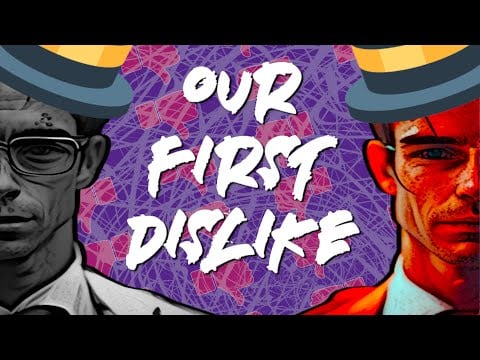For decades, conservatism has been hindered by a major personality flaw: its sense of humor. Or rather its lack thereof.
Humor is a powerful weapon for telling stories and mocking one’s enemies, something the American Left mastered with the skill of a Renaissance sculptor.
While so-called liberals were defining the edges of popular culture with the help of Bill Hicks, Chevy Chase and Jon Stewart, the right was mounting sad rebuttals via the likes of Jeff Foxworthy and Larry the Cable Guy.
It’s little wonder that for decades young Americans flocked to the hipper, and funnier, ideology; it’s a migration that to this day defines our culture wars.
The playing field may be leveling as mainstream comedians’ allegiance to left-wing orthodoxy has turned their comedy into Boomer-esque parody. Anyone who has suffered through the late-night talk shows recently knows the spontaneous laughter of the Carson days has been replaced by political applause.
And the right is, for once, seizing the moment.
Comedians like Bill Burr and Dave Chappelle, while not explicitly right-wing, are at least pushing back against the left’s PC totalitarianism. Fox News’s Greg Gutfeld is obliterating his network counterparts in the ratings.
There’s a lesser-known franchise poised to help lead the right’s humor revolution. Flappr, ostensibly a humor blog, has amassed a sizable cult following on Twitter thanks to its conservative and crude takes on current affairs (full disclosure: I’m an occasional contributor).
Flappr’s cult is poised to explode with its foray into film.
In the last few months the site has released three full-length documentaries detailing the French, Russian and Chinese revolutions.
All are equal parts educational and snark and serve as cautionary tales about the nature of the modern world.
“The French Revolution” is a narrated by the mysterious Professor James O’Flannery, aka Professor Jimbo. He’s a regular contributor and a man forged not in today’s clown car academy but in the academy of decades past.
To say he’s no fan of today’s youth would be an understatement, yet his curmudgeonly nature is softened by his interjections of reflection and regret. He’s angry, but human, and he has plenty to teach us about learning from the past, both his own and the world’s.
The film is comprised of brilliantly curated B-roll that is at times overlayed with separate visual elements. Think Peter Gabriel’s “Sledgehammer” video, but with a logical narrative arc.
These visual collages are interspersed with vignettes from the darkest recesses of modern Internet culture, giving the film a comical juxtaposition all its own.
The analysis, in contrast, is serious and sober. Thematically speaking, the film is an exploration of human nature, both micro and macro. And a startling reminder that despite our myriad technological advances, modern American society is closer to revolutionary France than we perhaps realize.
Partisan, paranoid and promiscuous, we are proof that, as Mark Twain quipped, “history never repeats itself, it does often rhyme.” And for that reason, we should be concerned.
Professor Jimbo pinpoints several causes, many of which also plague modern-day America, for the civil unrest that would eventually lead to the bloodbath we associate with the French Revolution itself.
The primary driver was fiscal; rampant inflation caused the price of bread to skyrocket, and if there’s one thing you don’t mess with, it’s a Frenchman’s baguettes. (Yes, you are correct in drawing a comparison to today’s egg prices on this side of the Atlantic).
Further, there was rampant corruption, made all the more despicable by the fact that commoners were regularly abused by French elites, including clergy and were essentially the only class to be taxed.
All of this was further stoked by an atmosphere of suspicion and rumor known as the Great Fear, which led a mob to storm the Bastille, believing it was packed full of political prisoners (in reality there were only a handful, including, in typical French fashion, two sexual perverts).
The Great Fear serves as a Machiavellian parable for the misinformation so prevalent from today’s legacy media intent on justifying their authoritarian policies by any means necessary.
Fact checkers, anyone?
I guess it’s up to Twitter users to do that when the fact checkers are busy just posting his schedule. pic.twitter.com/ou9n5vBFzA
— Stephen L. Miller (@redsteeze) November 2, 2022
Professor Jimbo does an admirable job of explaining it all with wit, cynicism and forward-looking wisdom.
We are introduced to the most important characters, complete with all their dirty laundry. Many were miscreants, but others would shape the fate of the West for centuries to come.
For instance, there’s Rousseau, that infamous coiner of the “noble savage” who drove French liberalism and whose haggard philosophy still taints our modern discourse.
And the Marquis de Lafayette, who also served in the American Revolution and was so revered by our military men that when the Americans joined World War I the leader of the American contingent, General John J. Pershing, visited his grave upon arriving in France and famously remarked, “Lafayette, we are here!”
The complex narrative is made more palatable by Professor Jimbo’s penchant for near-perfect, and totally objective, one-liners: “Leave it to the French to take the great promise of the American Revolution and f*** it up beyond all recognition.” And on the Marquis de Sade we are informed that “He would stick it in just about anything that moved, and probably a few things that didn’t.”
Needless to say, Professor Jimbo cares not for political correctness, but his historical knowledge is impeccable.
The film shows how our modern-day notions of left vs. right descend from the fact that during assembly French conservatives were seated on the right side of the aisle while the Communist Jacobins occupied the left.
The colorful language and historical anecdotes can’t hide the core message – the entire enterprise gave way to Napoleon and, as Professor Jimbo points out, achieved the opposite of what was intended.
If nothing else, the film is remarkably original, and originality is something the conservative movement has lacked for far too long.
“The French Revolution” is the perfect documentary for the digital age; meme-based hilarity with an important moral lesson for our modern, yet far from unique, times.
Give it a watch, or the Commies win.
Greg Jones is a freelance conservative columnist. His work has appeared at The Federalist, Human Events, American Spectator, and numerous other outlets.
The post Flappr’s ‘French Revolution’ Doc a Conservative Game Changer appeared first on Hollywood in Toto.



